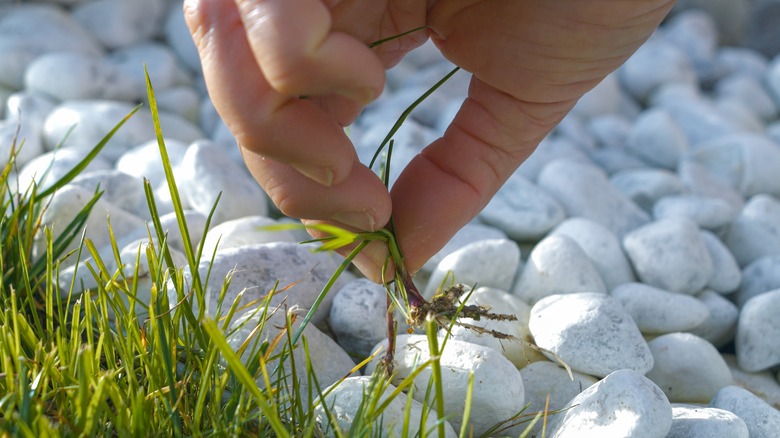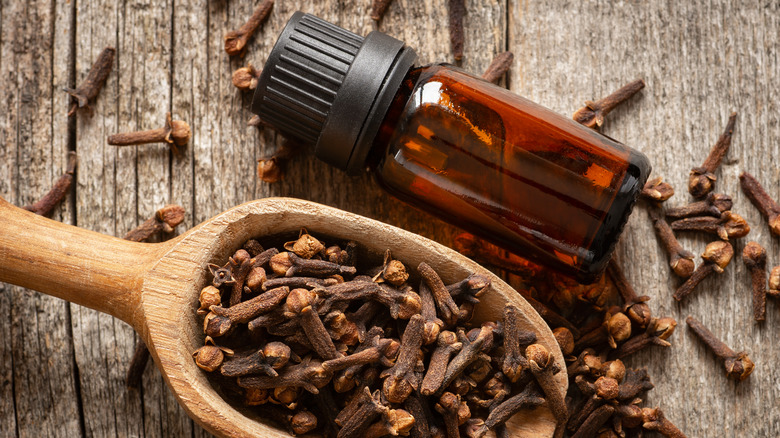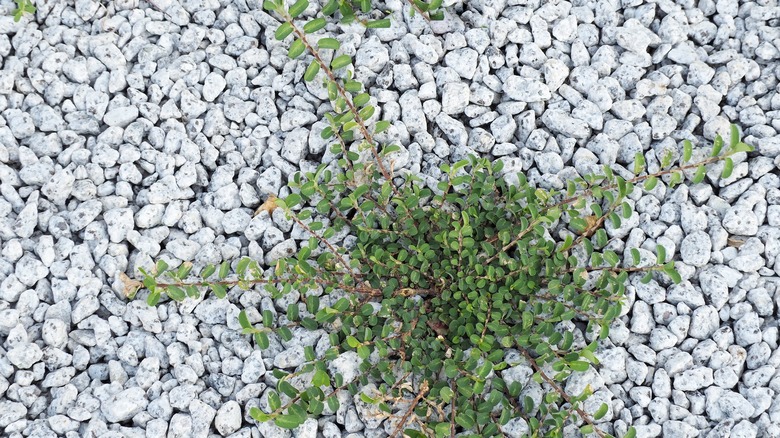The Practical DIY Solution For Killing Weeds In Gravel (& How Well It Really Works)
Whether it is a driveway or a walking path through your garden, seeing tiny weeds pop up through the gravel can be aggravating. It is easy to pluck a weed by hand here or there, but a bigger problem calls for a serious solution. Here's what you can substitute for weed killer, mostly using ingredients you already have on hand.
With clove oil, lemon juice, vinegar, and salt, you can make a DIY spray that will begin to kill weeds. The only downside? Clove oil is a contact-killer, meaning it will only work to kill leaves and stems it can touch, mostly leaving the roots of these weeds intact below the gravel line. The same goes for the other ingredients.
With that in mind, this DIY weed killer is ideal for young weeds. While you might not have clove oil at the ready, chances are you have the other ingredients in your kitchen right now. Mix them up so you have a solution you just need to add clove oil to so you can attack fresh growth as it appears.
How this clove oil mixture works to kill weeds
Grab a spray bottle, and combine 3 tablespoons of lemon juice, 20 drops of clove oil, and 2½ cups of vinegar. Add a pinch of salt, and shake up your concoction. Commonly used to treat plants for pests or to kill weeds, clove oil is an essential oil and all-natural ingredient derived from the clove plant (Syzygium aromaticum), which is native to countries like China and Madagascar. It kills the weeds by drying out the leaves and stems.
Salt works to eliminate weeds by burning the parts of the plant it encounters, while preventing the plant from absorbing necessary nutrients. Salt is ideal for use on gravel because it negatively impacts soil for several months, making it hard for weeds to return.
Lemon juice is acidic and can kill leaves. The acidity is also bad for soil health because it affects the availability of nutrients needed for healthy plant growth. The acetic acid in vinegar is what makes it potent to weeds, but the vinegar you use in your salad dressings only has a concentration of about 5%, and you need it closer to 10%. Cleaning vinegar is stronger and can reach concentrations of up to 20%. These higher concentrations are more effective if you want to keep weeds from popping up in gravel or between cracks on your patio or driveway, but can also be dangerous to humans. It's recommended that you properly protect yourself (with gloves and goggles at the very least) when handling this kind of vinegar.
The downside of using these household ingredients
When a weed springs up in gravel, its roots remain safe and hidden beneath the tiny rocks, protecting them from herbicides and making them hard to remove. Clove oil cannot kill the roots unless directly sprayed on them, so chances are good that weeds will come back in many cases. Clove oil works best on young weeds for that reason.
And because these natural ingredients all work as contact killers, you would have to reapply them a few times over the course of several weeks to ensure you are reaching the roots. Check the forecast before you apply your herbicide because rain will wash it away, rendering it ineffective.
Finally, herbicides do not distinguish between weeds and the plants we deem as beautiful garden décor. As you apply your DIY mixture to weeds in gravel pathways, be sure to avoid your flowers and shrubs, as they too can be harmed on contact. As mentioned, salt and acid can negatively impact soil long-term, so be sure to avoid spraying flower beds as well.


